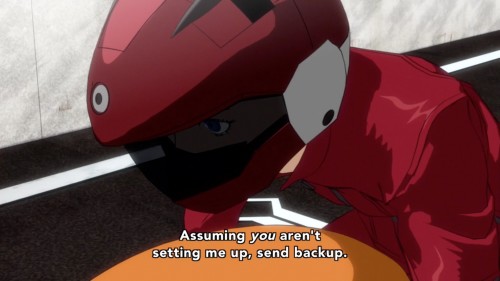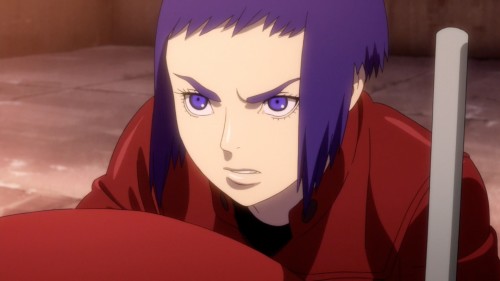Ghost in the Shell: Arise marks Production IG’s attempt to reboot the classic franchise. With multiple successful superhero and anime reboots out in the wild, it’s only a matter of time before others (certainly Dragonball) get remade. Movie and television producers reboot well loved shows to appeal to modern audiences. The story, the characters, and the special effects all get updated to how the show would have looked if it was made for the first time today. With Ghost in the Shell, a show already set in the future and one that has aged well visually, this standard formula wasn’t really necessary.
That alone wouldn’t stop Hollywood from remaking it the standard way if they thought they could get a hit out of the show. But, Production IG wisely chose to go in a different direction and made all the characters 10-15 years younger. The first two episodes of Ghost in the Shell: Arise serve as something of a prequel to the original Ghost in the Shell series, rather than a retelling of those stories. It keeps its procedural roots and in each episode the team must solve a crime or unravel a conspiracy. In this version, the audience gets a chance to see younger, less polished and less cynical versions of the familiar team.

While the beginning of the relationships between Major Kusanagi and Batou are fun to watch, what I enjoyed about past installments of the series were the philosophical issues the shows tackled. The original movie and television series explored what it meant to be alive, whether robots had or could have souls, and what being alive or having a soul meant as people transformed themselves into robots. Arise spends less time on these discussions in favor of screen time for beautifully animated fights. When the characters stop fighting and start talking, they focus on non-issues like whether parts of the government or the military industrial complex are corrupt (spoiler alert: they are). Plenty of episodes of the original series focused solely on action, but production IG spaced these episodes between other episodes that either directly addressed meatier issues, or helped the season long plot advance.

It’s not surprising that Major Kusanagi has little chance to wonder about whether she’s human during the constant gun fights she lands in during the first two episodes. At times, particularly in the first episode, there are hints that more interesting questions will be explored. But each time it looked like these issues would be addressed, the show shifted focus back to fighting. Still, I liked the first two episodes and suspect other fans of Ghost in the Shell will like them too. I hope that future episodes expand into the philosophical topics of the original, and the first couple of episodes are just a taste of more weighty fare to come.
Ghost in the Shell: The College Years
One response to “Ghost in the Shell: The College Years”
-
I think I’ve read somewhere that Ghost in the Shell will be having a live action.

Leave a Reply